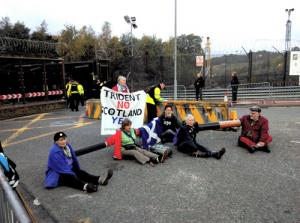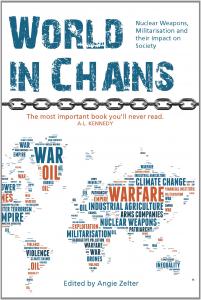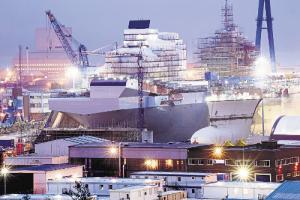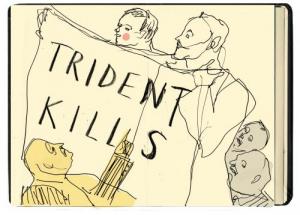On 22 September, Trident Ploughshares and Faslane Peace Camp blockaded
Faslane, homeport of the UK Trident nuclear weapons system. Photo: Trident Ploughshares
I got a lesson once in how to handle serious disappointment – one that I have never forgotten. It was 2001, and the Scottish high court had just pulled the rug from under a growing hope that Trident might be outlawed in the British courts. This was almost three years after sheriff Margaret Gimblett had famously acquitted the…






